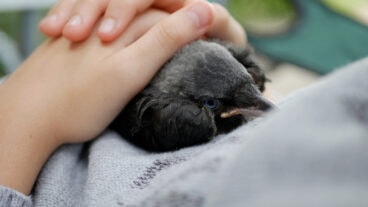For 30 years, the BIRD Foundation has contributed to globalization’s positive effects.
There is no consensus that globalization is a positive development in the history of humanity. Actually, these days, many people blame globalization for the further impoverishment of already poor societies and nations.
I believe that globalization is here to stay, and it is our mandate to take advantage of this trend for the best interest of societies – not just for the wealthy, healthy and young.
Technology cooperation preceded globalization by many years, and is one of its most important building blocks. Technology cooperation has become routine. It has always been so in the academic world. However, it is only in recent times that we see the steady growth of technology cooperation between governments, and the phenomenon among cross-border businesses is even younger.
Three relatively recent realizations have made technology cooperation a must in the minds of leaders. The first is related to the dangerous increase of terror as a means of seeking political goals; the second is the need to reduce dependence on oil; the third is global warming. All three require close cooperation between nations to achieve results, including in the area of technological solutions that can support joint political actions.
Technology cooperation is also important in biotechnology, information technology for medicine, advanced education methods and in many other areas that will contribute to the positive effects of globalization trends.
The best way to rapidly deploy developing technologies is to let the private sector and businesses do the job. Here is where the BIRD Foundation fits perfectly, promoting and supporting industrial US-Israeli cooperation.
Israel is a hotbed of activity for high tech research and development. The culture itself encourages and rewards risk-taking and entrepreneurship, while mandatory military service breeds technically oriented soldiers who manage new technologies and applications and, when given projects to develop, are offered the rights to any intellectual property they create.
BIRD, the Israel-US Binational Industrial R&D Foundation, has supported US-Israeli innovation and business partnerships for 30 years. It has invested in more than 740 projects that have yielded direct and indirect revenues of roughly $8 billion.
BIRD’s projects reflect global needs. From electric buses to semiconductor process equipment to seasonal allergy treatments, BIRD has recognized opportunities and created long-term success.
The BIRD Foundation supports projects without receiving any rights in the participating companies or in the projects themselves. Any financial assistance is repaid as royalties from sales. The Foundation provides support of up to 50 percent of a project’s budget, beginning with R&D and ending with the initial stages of sales and marketing. The Foundation shares the risk and does not demand that the investment be repaid if the project fails to reach the sales stage.
This week, BIRD will celebrate its 30th anniversary with The National Institute of Standards and Technology, The National Academy of Sciences, Israel?s Office of the Chief Scientist, and the Embassy of Israel during an all-day event, ‘The Future of Technology Cooperation: A US-Israel Perspective,’ at the National Academy of Sciences Building in Washington, DC.
The 30th anniversary celebration is a unique opportunity to hear senior government and industry leaders from Israel and the U.S. discuss successful technology cooperation. Keynote speakers include Dr. Mark M. Little, Senior Vice President and Director, GE Global Research and Dr. Vinton G. Cerf, Vice President and Chief Internet Evangelist, Google.
The program will also include the following speakers & guests:
** John Negroponte, Deputy Secretary of State, U.S. Department of State
** Sallai Meridor, Israeli Ambassador to the US, Embassy of Israel
** Robert Cresanti, Under Secretary of Commerce for Technology, U.S. Department of Commerce
** Dr. Eli Opper, Chief Scientist, Israel’s Ministry of Industry, Trade and Labor
** Alexander ‘Andy’ Karsner, the Assistant Secretary for Energy Efficiency and Renewable Energy (EERE)
** Dr. Orna Berry, Chairperson, Israel Venture Association
** Yoel Gat, Chairman and CEO, RaySat
In addition, four successful BIRD case studies will be discussed. The companies and projects include:
** GE/DxRay, which are developing ‘two color’ CT (Computed Tomography) capability;
** Opgal/Kollsman, a cooperation that led to the revolutionary EVS system, which greatly assists in the landing of business jets on low-visibility runways;
** CByond-ACMI (now called Gyrus ACMI), two firms that developed a compact endoscope with an integral miniature camera and internal LED illumination; and
** RaySat/iDirect, which developed a satellite antenna for in-vehicle entertainment.
For me, this seminar is the kick-off session for the next 30 years of this partnership for progress, and the continuance of our contribution to the positive effects of globalization.












